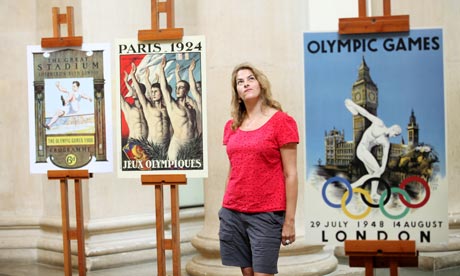
The Hayward Gallery in London is to be turned into a giant art school next summer, with classes for the public held by artists including Tracey Emin and Turner prize winners Mark Wallinger, Martin Creed and Jeremy Deller, as well as famous international names such as Thomas Hirschhorn and Marlene Dumas. Artists will hold lectures and workshops, and the event will culminate in an exhibition of work produced by the public in the gallery.
"It's going to be crazy," said Patrick Brill, who makes art under the name Bob and Roberta Smith. "The idea is to make it a great big sandpit of ideas." Southbank's artistic director, Jude Kelly, said: "It will be open for anyone from the public for a month to learn not just art, but anything else that the artists want to teach."
The Hayward's Wide Open School is one of the expected highlights of Southbank Centre's Festival of the World, which runs next summer from 1 June to 9 September, to coincide with the London Olympic and Paralympic Games.
Other highlights will involve the largest-ever gathering of poets, spearheaded by Simon Armitage; a residency by the Venezuelan Simón Bolívar Orchestra and its chief conductor Gustavo Dudamel; an African strand led by Senegalese musician Baaba Maal; and a four-day celebration of Wales led by the renowned bass baritone Bryn Terfel, regarded as the greatest British singer of his generation.
There will also be a programme led by disabled and deaf artists, including Graeae Theatre and Candoco Dance – the largest such event, aiming to provide a parallel to the Paralympic Games.
The festival is inspired by the conviction of Pierre de Coubertin, the founder of the Olympic movement, that every young person has an Olympian spark of talent waiting to be drawn out – not just on the track or field, said Kelly.
The festival's focus will not be art being "done" for audiences, but audiences getting involved in making art.
According to the Hayward gallery's director, Ralph Rugoff: "Wide Open School grew out of a response to the Olympics, as being the moment when for three weeks most of us become couch potatoes and watch people with glorious bodies do things we could never ever do in a million years – and we become passive. So I began to think what kind of offer we can make that's going to flip that on its head. We are going to ask people to become much more active and to make work themselves."
Armitage's project, Poetry Parnassus, will invite more than 200 poets to gather at the Southbank for readings and workshops, including a final gala event with all the writers.
He said: "The dream is to bring a poet from every country participating in the Olympics to the Southbank and to make the Southbank a great community of poets."
Each writer will also contribute to an anthology called The World Record, to be published by Bloodaxe Books, celebrating poetry in translation. The event will look to the spirit of the ancient Olympics, in which poets competed, and composed victory odes to successful athletes – Pindar's Olympian Odes being the most famous case.
The Simón Bolívar Orchestra, which has always proved a crowd-puller on the Southbank and at the Proms for the committed musicianship and passion of its young players, will return for a four-day residency.
This year, they will create pop-up concert halls and will be on hand for teaching sessions for young British players. There will be a children's concert and musicians will set up a fiesta of Latin music.
Baaba Maal's Africa Utopia will be a series of talks, debates and concerts focusing on what the African continent can offer the rest of the world.
A number of younger people will be joined by "elders" – African musicians, artists, writers and activists – to debate social change in the context of African examples.

